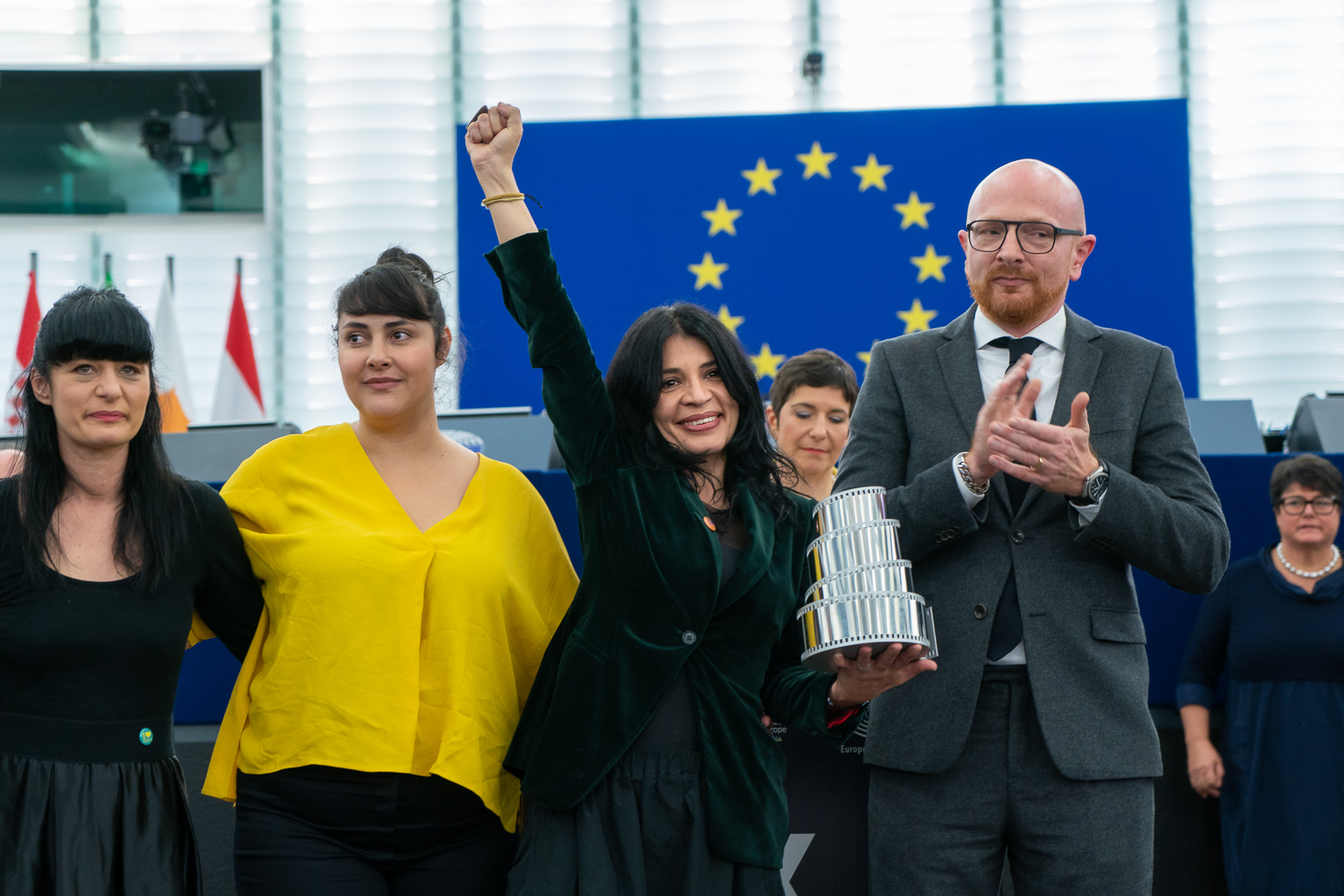Article – LUX Prize winner: "Petrunya is an example of cinema's power to change things"

“It’s a story of Petrunya, a young woman, who defies the rules of her society in order to seek justice and to find her true place in society.” That’s how the North Macedonian director described her film God Exists, Her Name Is Petrunya, which is a North Macedonia/Belgium/Slovenia/Croatia/France coproduction. Mitevska was inspired by a true story that took place in in Štip, a small town in North Macedonia five years ago, when a young woman caused uproar by taking part in – and winning- a race traditionally reserved for men.
In most of the Orthodox Christian world, the Epiphany holiday on 19 January is celebrated by means of a race for the holy cross that a priest throws into a lake or river. The cross is supposed to bring the winner good fortune for the whole year.
A story about gaining confidence and finding your true self
Petrunya is an overweight, 32-year-old, unemployed history graduate, who is constantly put down by her overbearing mother. When she finds herself in the place where the race for the cross is taking place, her impulse to jump in the freezing water comes from her frustration with the situation she is in.
“In the beginning she is almost an anti-hero, said Mitevska during a Facebook live after receiving the prize. “You don’t believe that she is capable of anything and then she empowers herself and realises her true self. And this is an important message especially for us women. I know for me confidence has been and actually still is a big problem. To be able to say ‘I have the right to do this’. This is what Petrunya goes through. It’s a feminist movie but we can all identify with the strife for justice.”
In the film, Petrunya causes uproar in the local community and the church accuses her of stealing the cross. Under pressure from the priest, the police inspector brings Petrunya to the station and puts her under pressure. “Why don’t I have the right to a year of good fortune?” she asks defiantly.
The power of cinema
“Petrunya is an example of the power of the cinema to change things,” said Mitevska, noting that when a young woman jumped for the cross in Štip this year, there was no fuss and the priest just gave it to her.
During the award ceremony on 27 November, Parliament President David Sassoli said: “Cinema is one of the many simple keys that can help us unlock the door to an understanding of the reality in which we live. The LUX Film Prize provides us with an extraordinary opportunity to do just that.”

